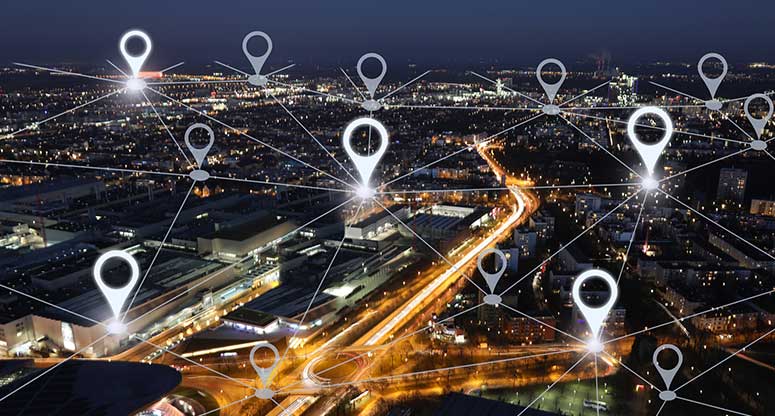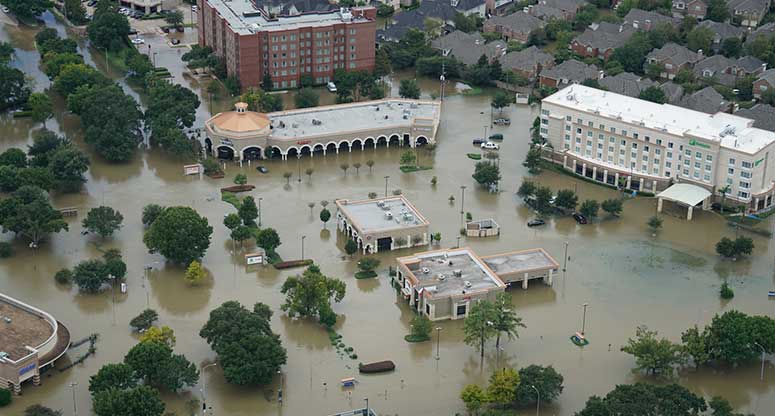
Is your call center ready for the next storm season? Our list of call center best practices can make sure you’re prepared for whatever nature throws your way.
As summer heats up, so does storm season—and, as we’ve learned from very recent history, that can mean some major upsets to business as usual. For call center managers, even the slightest disruption in communications, staffing or power can spell disaster.
Storm season doesn’t just apply to hurricane zones, either. Winter storms in the Midwest, flooding in the East and freezing rainstorms in the Pacific Northwest have all been known to take their toll on local businesses. In other words, no matter where you’re located, call center best practices demand that you have a plan for storm season.
As we’ve noted here in the past at the Working Solutions blog, there are some big questions for call center managers to consider when preparing for storm season, such as:
- Do you have enough skilled agents ready to ensure uninterrupted customer service?
- If yes, then for how long?
- If in-house teams are overwhelmed, are outside resources in reserve to step in to help. How fast?
But the list of questions doesn’t end there: These call center best practices outline the 10 most important questions to ask when creating your action plan for the upcoming storm season.
Call Center Best Practices for Storm Season: 10 Key Considerations
1. Are you prepared for power interruptions? Losing electrical power is usually a given during a big storm. If that happens, how long can your call center continue to operate? Consider not just the business implications of losing connectivity, but also the safety considerations of no heat or air conditioning. It’s important to have a plan that includes a guaranteed power source in case of emergency—even if that means shifting your operations to a backup location.
2. Are you prepared for communications disruptions? Even in the age of satellite connectivity, it’s not uncommon for phone lines to fail during a disaster-level storm. A call center ceases to function the local cell tower is knocked offline, or access to the Internet is compromised. Dedicated networks or backup landlines may help you weather these disruptions. The more reliable solution, however, is to have a secondary call center where you can shift operations in times of crisis.
3. Do you have backup agents standing by? In the event of a major storm, even if your call center isn’t evacuated or damaged, the agents who work there may find it difficult to get to work. Flooding, roadblocks, and other travel restrictions, as well as crisis-related personal or family issues can all cause unexpected absences and delays. Do you have backup agents in place, preferably in an alternate location, ready to fill in?
4. Do you have a direct line to your call center staff? Can you communicate with your agents when the normal lines of communication are disrupted? Do you have a means of predicting staffing levels for the next 48 hours when phone lines are compromised? When developing your storm action plan, call center best practices demand a plan for communicating with team members.
5. Are you prepared for a potential evacuation? Particularly in the nation’s hurricane zone, storms can quickly grow strong enough to warrant city-wide evacuations. Do you have a backup location in place should your primary call center be ordered to evacuate?
6. Are you prepared for temporary closures? Even worse than a precautionary evacuation is the chance that a big enough storm can do irreparable harm to your call center. In this case, failing to have a backup means a potentially disastrous lapse in communications, as well as the need to reconstruct the facility.
7. Are you prepared to lose access to files? If you keep important hard-copy files on site, are you prepared to lose access to them, either due to an evacuation or physical damage? And if this is a legitimate concern for your call center, it’s probably time to consider shifting to a more digital format of record-keeping. Which brings us to…
8. Do you have backups? If you’re using digital technology to manage operations, store records, track calls, compile data or any of the myriad of other modern call center best practices, it’s absolutely imperative to make sure all of that digital info is backed up. Whether or not you already use the cloud for this purpose (and most businesses do) it’s important to make double sure that everything you need for a smoothly operating call center is secure elsewhere—preferably off-site and in a different state.
9. Are your vendors secure? So, you’re fully backed up and confident about your call center storm plan. But are you certain that all the vendors you work with can say the same? If you rely on any third party to help maintain your call center operations, it’s important to be sure that they’re just as equipped to weather a natural disaster as you are.
10. Are you prepared for the possibility of back-to-back disasters? This is no idle question: Recent years have shown that hurricanes can quickly follow each other, compounding the damage and outages from the first with even more catastrophic results.
If you’re struggling to answer all these questions in the affirmative, it may be time to call in the professionals. At Working Solutions, we pride ourselves on providing full-service, turnkey solutions designed to ensure continuous call center operations in times of crisis.
Find out how we can help you achieve call center best practices for storm season and every other time of the year.
-
Related Posts
-
Why Customer Experience (CX) Enhancements Should Be Your…
11/07/2024 April Wiita -
Mastering the Art of Luxury Customer Engagement
06/27/2024 April Wiita -
Revolutionizing Customer Experience: Addressing the 57% Decline in…
09/26/2023 April Wiita
-
-
Recent Posts
-
The Future of Customer Service: Top Trends to…
06/02/2025 Gary Ash -
How to Implement 2025 Customer Service Trends
12/03/2024 Tracey Sloan -
Customer Service That’s Always a Treat: A Halloween…
10/25/2024 Maria A. Barto
-
-
Ws News
-
Working Solutions Named Customer Contact Week’s BPO of…
06/11/2025 Springfield Lewis -
Working Solutions Deepens Its Commitment to Exponential Growth
05/29/2025 Springfield Lewis -
Working Solutions, An Advocate for Great CX, Places…
05/20/2025 Ronnie Myers
-








